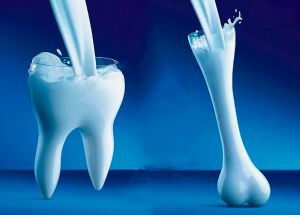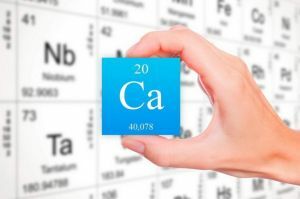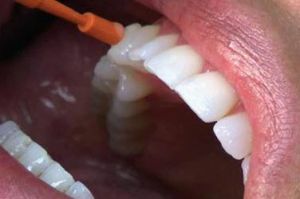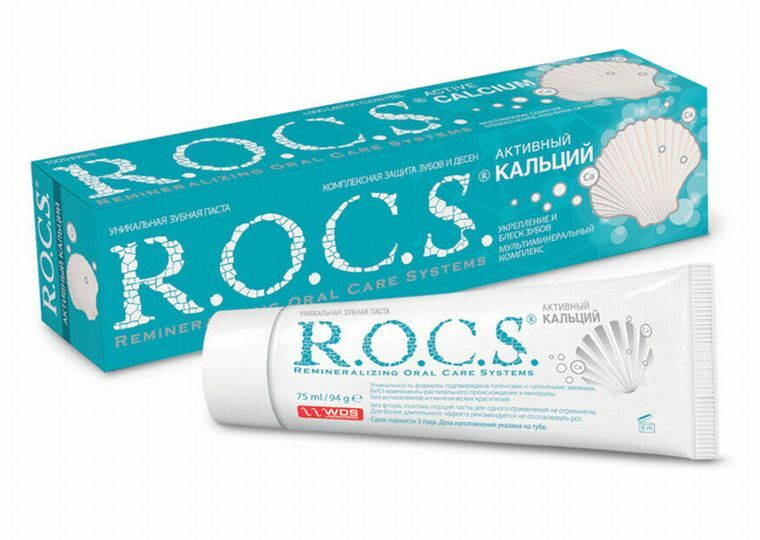 Many parents often force their children to drink milk and eat curd, arguing that these products contain a lot of calcium, which is useful for bones and teeth.
Many parents often force their children to drink milk and eat curd, arguing that these products contain a lot of calcium, which is useful for bones and teeth.
Is this really so? Is it true that calcium is important for maintaining a healthy state of teeth and the whole body as a whole?
Contents
- The very "bricks" of which the teeth are composed
- Calcium gluconate - "who" is this?
- Consequences of the deficiency of the element Ca
- How to timely identify a deficit?
- Usage rules
- How to prevent micronutrient deficiency
- Additional sources
- Use for children
The very "bricks" of which the teeth consist
The main "building" element of the teeth is calcium, it helps to maintain a healthy state of a smile. Inadequate use of this microelement increases the risk of tooth decay and the appearance of gum disease.
The frequent use of this mineral in sufficient quantity allows to keep a teeth in a good condition, gives them necessary hardness, strengthens all bones of an organism.
Microelement is involved in the process of enamel restoration, which does not stop even for a minute from the moment when the child only had teeth cut.
The lack of this substance in the baby's nutrition can cause the formation of poor-quality and weak tooth enamel, which will be strongly affected by acid, which greatly increases the risk of caries in childhood and adulthood. Calcium gluconate - "who" is this?
This substance was created specifically to eliminate the lack of calcium in the human body. The drug is available in the form of tablets or  injections, which are given intramuscularly.
injections, which are given intramuscularly.
This remedy is often used in the remineralization of teeth, when it is necessary to restore the balance of minerals in enamel, to increase its strength, increase resistance to external factors, prevent the development of dental diseases.
Almost all drugs for the remineralization of teeth include calcium gluconate, and many doctors recommend that it be used additionally in the form of tablets to replenish the body with this substance.
Consequences of the deficiency of the element Ca
 The lack of a microelement is a serious problem for the body, since not only the teeth and bones suffer, but also the nervous, muscular and cardiovascular systems.
The lack of a microelement is a serious problem for the body, since not only the teeth and bones suffer, but also the nervous, muscular and cardiovascular systems.
Shortage is not easy to notice at once, its symptoms appear gradually. With regard to teeth, the mineral deficiency manifests itself in this way:
- can soften the bones of both the jaws and the teeth themselves;
- because of softening of tooth enamel teeth quickly darken, because they "absorb" some of the substances from food;
- quickly develops tooth decay, the sensitivity of teeth is increased.
How to timely identify a deficit?
If there is a lack of calcium in the body, it begins to leach from the skeleton into the bloodstream to ensure normal vital activity.
A similar process of mobilizing this trace element of their bones is safe if the person in time makes up for the deficiency of the mineral in his body. If this does not occur, negative events may occur, which indicate a deficiency of this important substance.
The following symptoms are observed:
- increased fatigue, a constant sense of fatigue;
- muscle cramps;

- bone pain arising from thinning;
- fractures even with minor injuries;
- rapid tooth decay, bleeding gums;
- appears fragility of hair and exfoliation of nails, the face looks dim;
- develops osteoporosis;
- , severe bruising occurs with minor bruises;
- memory degradation;
- arrhythmia;
- in children: improper skeleton formation and growth problems;
- in pregnant women: severe toxicosis, delay in utero development of the fetus.
Usage rates
Bone tissue is renewed throughout human life. In adults, the rate of tissue renewal is up to 3% per year, in children up to the year this figure is close to 100%, therefore, sufficient calcium production is of great importance for the child.
For each age group there is a daily micronutrient norm, in this case, the more years the child, the more it needs to consume calcium:
- from 0 to 6 months - 500 mg;
- from 7 months to 3 years - 700 mg;
- from 3 to 10 years - 900 mg;
- from 11 to 16 years - 1200 mg.
During the first six months of life, the child receives the necessary trace element along with milk or milk formula, but by the half-year this quantity is not enough, therefore, it is necessary to start lactating with the necessary dose of microelements.
The World Health Organization has established a rate of calcium intake for adults for the day - 900-1200 mg. But this rule has its own exceptions:
- athletes need to consume 200 mg more of a microelement than a normal person;
- , women need 100-150 mg less substance;
- during the 1 st and 2 nd trimester of pregnancy the need rises to 1500 mg / day;
- during the 3rd trimester and during lactation, a woman needs to get 1800-2000 mg of substance daily;
- after 50 years, the body strongly loses calcium, so the daily norm should be at least 1200 mg.
How to prevent the shortage of the microelement
To avoid the lack of the element Ca, it is necessary to adhere to a number of rules that are aimed at maintaining a sufficient amount of this mineral and minimizing its losses:
- It is necessary to consume a sufficient amount of food with this chemical element, primarily milk and products from
 it. Also a large amount is found in fish, dark green vegetables( cabbage, spinach, broccoli, celery, parsley), almonds, hazelnuts. The calcium content in sesame and cheese is several times higher than in milk and cottage cheese. Diets lead to a sharp decline in the level of this mineral.
it. Also a large amount is found in fish, dark green vegetables( cabbage, spinach, broccoli, celery, parsley), almonds, hazelnuts. The calcium content in sesame and cheese is several times higher than in milk and cottage cheese. Diets lead to a sharp decline in the level of this mineral. - The body needs vitamin D, which allows calcium to be absorbed. A large amount of this vitamin is found in fish, and the skin receives it under solar radiation.
- Do not abuse alcohol because it interferes with the metabolism of vitamin D in the liver, which is why calcium is poorly absorbed.
- Smoking causes serious disorders and loss of bone tissue, so it is necessary to refuse from cigarettes and hookah.
- Coffee is washed out of calcium bones, so you should lower the dose of this drink to one cup a day. If you have to drink more coffee during the day, you need to dilute it with milk.
- It should be increased activity during the day, as a sedentary lifestyle destroys bone tissue. It is useful walking, aerobics, shaping, swimming, skiing.
Additional sources
 To prevent calcium deficiency in the dental tissue, proper oral care with professional means is necessary.
To prevent calcium deficiency in the dental tissue, proper oral care with professional means is necessary.
Toothpaste, rinse aid, dental gels should contain a certain amount of calcium.
If there is a development of caries or destruction of the enamel, you need to change the usual toothpaste to therapeutic with calcium. It should contain a high content of active substances, especially Ca. A qualitative and useful paste for cleaning teeth should contain such substances:
- calcium lactate, pantothenate, citrate, glycerophosphate;
- hydroxyapatite.
It is very important that there is no fluoride in the calcium-containing agent, which will reduce to zero all the beneficial effects of the paste. Among useful tooth-pastes dentists give out:
- President Unik;
- Biocalcium Splat;
- Span Sensitive;
- ROKS Caribbean summer;
- ROSS Active calcium.

Special gels for teeth allow you to remineralize not at the clinic, but at home. Dentists advise to stop the choice on the following means:
- Rocks Medical Minerals;
- gel for teeth TianDe;
- Amazing White Minerals;
- Vivax dent.
All these preparations contain several compounds of a microelement at once, therefore very effectively protect teeth and gums.

Vitamins with calcium in tablets have well proven, among them:
- Calcemin;
- Calcium D3 Nycomed;
- Complicant calcium D3;
- Vitrum Calcium.
These drugs have a beneficial effect on bone tissue, increase the level of microelements in the blood, prevent the development of osteoporosis and other problems.
Benefits for children
Calcium is very important throughout the life of a person, but it plays the greatest role in childhood, when the formation of all vital systems and organs, including teeth, takes place. The element underlies the formation of bone tissue, dentin and enamel of the baby's teeth.
The lack of this substance will lead to the fact that the child will form enamel, which is unstable to the action of acid, so the teeth will quickly deteriorate both in childhood and in adulthood. It is very important to teach a child to take good care of the oral cavity from a young age, eat healthy foods and not abuse sweets.
Calcium is a chemical element that performs important functions in the body. It is especially important for the state of teeth: the level of the content of this trace element in the body depends on the beauty of the smile.
